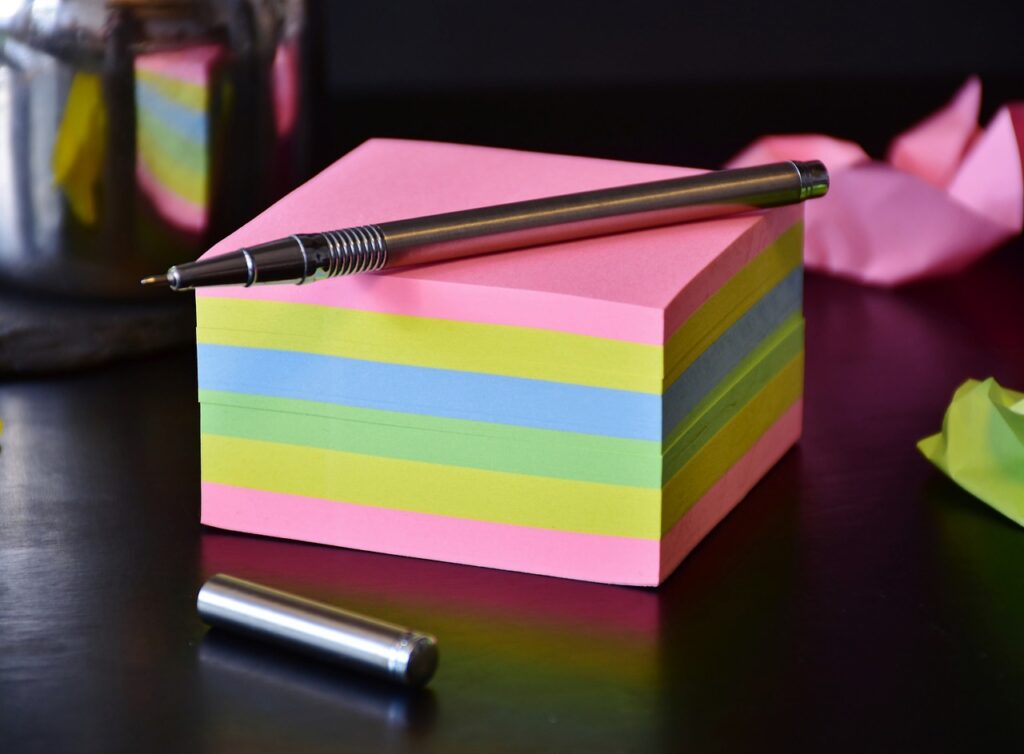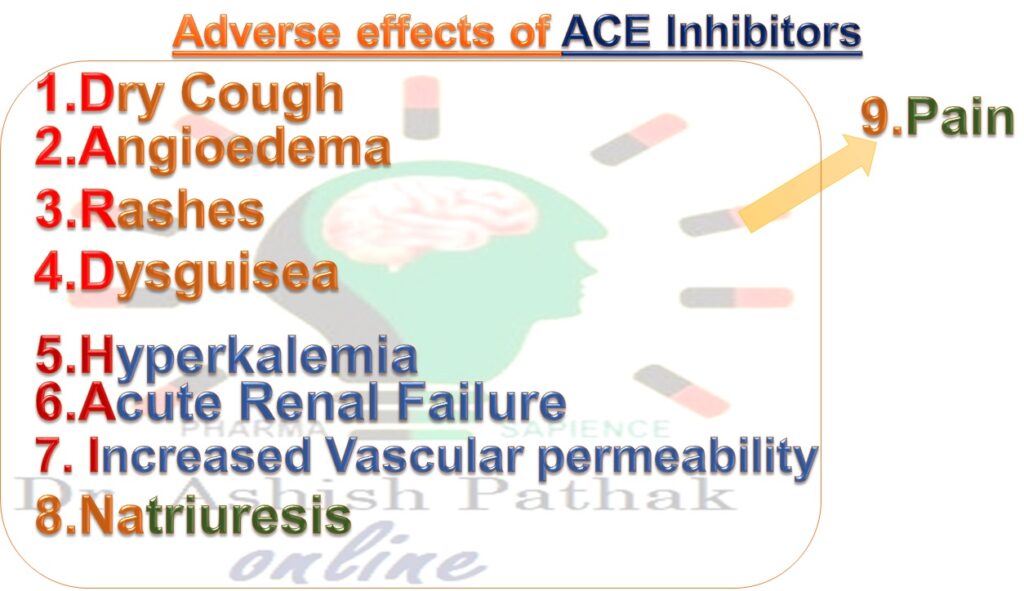Introduction
When it is time for exams, the biggest challenge for students is to organize their study material and revise efficiently. Just writing down the information is not enough, it is important to make notes and summaries that help in understanding and remembering.
Writing effective notes means creating a tool that you can easily use during revision and make your concepts clear. In this blog, I will give you 9 proven tips that will make your note-making skills even more effective. These tips will simplify your revision and boost your performance in exams!
Let’s get started!😊
1. Understand the Purpose of Notes
A. Why do we make notes?
Some students do not like to make notes. They say that we study directly from the books and save our time. I want to tell such students that although it may take you more time to make notes initially, it becomes easy to read, revise and recall later. The purpose of notes is not just to copy everything. It is a process in which you make the information short, clear and relevant, so that it becomes easy for you to understand and revise.
While making notes, the focus should be on understanding the concept and not on writing words. When you understand a topic and write it in your own words, it stays in your memory for a longer time.
Pro Tip: Before writing notes, think about how you will use them in the future—such as:
• For quick revision
• To solve numerical problems
• To clarify concepts If this purpose is clear, your notes will become more impactful and will be useful during exams!
2. Organize Your Notes
Effective notes are useful only when they are systematic and well-organized. If the notes are visually clear and easily navigable, it will help a lot in revision.
A. How to organize?
• Use headings and subheadings: Write each topic under a title or heading. Make points more specific by creating subheadings.
• Use bullet points: Writing in points is easier and quicker to understand than writing long lines.
• Divide topics into parts: Keep definitions, diagrams, examples and key points in separate sections.

Maintain consistency:
• Use numbering or create a specific format for each section.
• If you follow the same style each time, you will understand what is important as soon as you look at the notes.
Example:
If you are writing about a reaction or process, instead of explaining it in a paragraph, write it in steps or compare it by making a table.
• Paragraph:
“Beta blockers are used for hypertension, anxiety, and tachycardia. They reduce the heart rate by blocking adrenaline receptors.”
• Steps/Table:
Drug Class: Beta Blockers
Uses:
1. Hypertension
2. Anxiety
3. Tachycardia
Mechanism: Blocks adrenergic receptors to reduce heart rate. This type of format saves a lot of time during revision and is easy to understand!
3. Write in Your Own Words
When you make notes, always try to write in your own words. This will help you understand and remember concepts better.
• Paraphrase: Write about topics that you understand in your own simple language. Avoid copying difficult terms or textbook language exactly as this may seem confusing during revision.
• Understanding is important: When you write something in your own words, it means that you have understood the concept.
Avoid This Mistake: Just copying lines from the lecture or textbook. This will only waste time and can increase confusion during exams.
Pro Tip:
Use your shorthand or abbreviations which are convenient for you.
• Example:
o RAAS for Renin Angiotensin Aldosterone System
o ADR for Adverse Drug Reaction This kind of approach makes your notes concise, and revision becomes much easier!
4. Use Visuals and Diagrams
Visual aids are very helpful in understanding and remembering complex concepts. Diagrams, flowcharts, and tables make your notes concise and visually clear, which is very helpful during revision. This is personally my favourite part, I call them spider notes.

This method is most effective if you need to remember a long paragraph. Break the paragraph into small sentences and convert them into spider notes. These also make revision easier.
Why are visuals important?
• They help retain information: The human brain processes visuals much better as compared to plain text.
• Effective for scientific topics: In subjects like pharmacology, visuals clarify concepts, such as drug mechanisms, pathways, and cycles.
How to use it?
• Diagrams: Create diagrams wherever possible. For example, when studying the cardiovascular system, create a flowchart of blood circulation instead of writing lengthy paragraphs.
• Flowcharts: Use step-by-step flowcharts to simplify processes.
• Tables: Create tables to make comparisons easier, such as comparing AAS to Flame Photometry in spectroscopy.
Example:
Instead of writing this:
• Blood enters the right atrium, then moves to the right ventricle, and is pumped to the lungs for oxygenation. Oxygenated blood returns to the left atrium, moves to the left ventricle, and is pumped to the body.
Draw this as a flowchart:
• Right Atrium → Right Ventricle → Lungs (Oxygenation) → Left Atrium → Left Ventricle → Body
Pro Tip:
Use colored pens or highlighters to make diagrams stand out and visually appealing. This will also maintain your interest and you will remember the concepts better! 😊
5. Highlight the Essentials
It is important to highlight important points in the notes so that during revision your focus goes directly to those points which are most important for the exams. Highlighting makes your notes visually attractive and easily scannable.
How to highlight?
• Keywords, formulas and dates: Highlight only those things which are most important for you during the exam.
• Avoid overload: There is no need to highlight everything; if the whole page is colourful, important points may be missed.
• Use sticky notes: If you want to add any additional point or concept, use sticky notes. These are helpful for quick reminders.

Pro Tip:
Use multiple colours for different topics:
• Blue: Formulas
• Yellow: Definitions
• Pink: Dates or examples
• Green: Important headings
Example:
If you are studying the topic “Enzymes”, then:
• Keyword: Enzymes are biological catalysts → Yellow highlight
• Formula: Michaelis-Menten equation → Blue highlight
• Example: Lipase, Amylase → Green highlights. This method makes notes more organized and visually impactful, and revision is super quick during exams!
6. Summarize After Learning, Not During
The most effective way of making notes is to first understand the topic well and then summarize it. I always tell my students to leave 2 blank pages after completing the chapter. There are two reasons for this. First, make a summary of the complete chapter and second, if we get any new point, note it down. And this summary is also effective in spider notes form.

Two-Step Process:
1. Understand first: While reading a lecture or textbook, keep full focus on understanding the concept, not on writing. If there is clarity in understanding, your notes will automatically become better. 2. Then summarize: When you feel the topic is clear, write a short and crisp summary in your own words in the form of spider notes. This will give you both clarity and retention.
Practical Tip:
After the lecture or reading session, write a short summary, less than 100 words. If you can write a short summary, it means you have grasped the topic well.
Example:
Topic: Enzyme Kinetics
• During the lecture: Focus on understanding—absorb concepts like Vmax, Km, Michaelis-Menten equation well.
• After the lecture:
“Enzyme kinetics studies the rate of enzyme-catalysed reactions. Vmax is the maximum velocity, and Km indicates substrate concentration at half Vmax. The Michaelis-Menten equation describes this relationship.”
With this process the fundamentals of your topics will be clear and revision will also be quick. This two-step method prevents confusion and ensures clarity.😊
7. Use Mnemonics and Memory Aids
Mnemonics and memory aids are the most effective tools for remembering long lists, formulas, and complex concepts. These techniques make boring topics interesting and help you remember information quickly. I am uploading some videos related to this on my YouTube channel Dr. Ashish Pathak Online where you can learn about Mnemonics, Memory Techniques, one of which is memorizing the classification of cephalosporin and another is the use of memory techniques in competitive exams.
Mnemonics is a creative trick that makes difficult information easy and memorable. You can simplify topics by using words, acronyms, or rhymes.
How to make mnemonics?
• Acronyms: Take the first letter of every word and make a meaningful acronym.

• Rhymes and phrases: Convert information into a funny or rhythmic line.
• Visualization: Link concepts to a story or image.
Example in Pharmacology:
1. Mnemonic for antihypertensive drug classes:
“ABC-AD”
o A → ACE Inhibitors
o B → Beta Blockers
o C → Calcium Channel Blockers
o A → Angiotensin II Blockers
o D → Diuretics
2. Rhymes for Cranial Nerves:
“Oh Oh Oh To Touch And Feel Very Green Vegetables, AH!”
o Olfactory, Optic, Oculomotor, Trochlear, Trigeminal, Abducens, Facial, Vestibulocochlear, Glossopharyngeal, Vagus, Accessory, Hypoglossal
Pro Tip:
Make your mnemonics funny or personal—whatever helps you remember. Example: If you want to remember “Digestion Enzymes”, make up a rhyme, such as:
“Amylase cuts carbs, Protease loves protein, Lipase hugs fats!”
This creative approach makes concepts interesting and memorable, which is very useful for exams! 😊
8. Review and Revise Regularly
Notes are not just for writing; it is equally important to revise them frequently. Regular revision solidifies concepts and information in your mind, and you feel stress-free during exams.
Why is revision important?
• Memory reinforcement: If you revise your notes frequently, the information will be remembered for a longer time.
• Work on weak areas: During revision, you will only know things that are unclear. By focusing on them, you can make your preparation stronger.
• Relief for exam season: If you revise regularly, there will be no need for last-minute cramming during exams.
How to Review Effectively?
1. Make a regular schedule: Revise each topic at an interval of one day, then one week, one month and this is called scientific revision plan.
2. Mark unclear areas: Highlight the areas where there is confusion and clarify them in the next study session.
3. Make condensed summaries: Make a one-page summary for large topics. This is most helpful for quick revision, especially for last-minute preparation.
Example:
If you’re studying “Drug Metabolism,” write full-length notes first. Later make a short summary, such as:
• Phase I Reactions: Oxidation, Reduction, Hydrolysis
• Phase II Reactions: Glucuronidation, Sulfation, Acetylation
• Key Enzymes: Cytochrome P450
Pro Tip:
• Use flashcards or sticky notes for quick points.
• Make Sunday a review day where you revise the topics of the whole week and use a scientific revision plan.
This habit will bring consistency in your preparation and you will always be ready for exams!😊
9. Use Technology Wisely
Incorporating technology into your study routine is a smart move today. Apps and tools help you organize, revise, and quickly recall your notes. But, digital tools should be used without distractions.
How to use technology?

1. Digital Note-taking Apps:
o Easily organize your notes using Notion, Evernote, or Google Keep. These apps help you divide notes into categories, search, and access them.
o You can access your notes from anywhere at any time by syncing them across different devices.
2. Recording Lectures:
If you miss an important lecture or class, you can record it. After that, when you make your notes, write detailed notes while listening to the recording. This will help you understand a concept and you can also add extra information.
3. Digital Flashcards:
Create flashcards using apps like Anki or Quizlet. Flashcards are an effective tool for quick topic recall, especially when you need to remember formulas, definitions, or terms.
Warning:
It’s important to avoid distractions when using digital tools.
• Keep focus: While studying on mobile or laptop, try to avoid notifications and social media so that your concentration does not break.
• Set time limits: If you are using digital tools, work within a specific time frame so that you can avoid overuse.
Example:
You can make a notebook in Notion in which pharmacy topics are organized. There can be separate pages for each topic and you can also add pictures, diagrams, and links for better clarity.
Create flashcards for “Drug Interactions” in Anki app:
• Card 1: What is the interaction between Warfarin and Aspirin?
Answer: Warfarin + Aspirin = Increased bleeding risk.
When you use these tools efficiently, your revision and study process will become smooth and you will feel ready for your exams!😊
Bonus Tip: Test Yourself
If you want to make your learning effective, self-testing is a powerful strategy. Or you can ask your friend to make questions for you and you make questions for your friend. This allows you to think like an examiner, test your understanding and helps you remember concepts. Active recall enhances your memory, which is crucial in exam preparation.
How to do self-testing?
1. Convert notes into questions and answers:
Converting your notes into questions is a smart approach. This will allow you to actively recall concepts and check your understanding.
2. Practice regularly:
It is important to revise the questions you have made from time to time. You can take weekly self-tests which contain questions related to the topics of your notes.
3. Create a Question Bank:
Create a question bank in which you can put important questions of each topic. Whenever you get time, review this question bank.
Example:
If you are studying IR Spectroscopy, you can make simple questions, such as:
• Question: What is the functional group range for carbonyl group in IR spectroscopy?
• Answer: 1950-1640 cm⁻¹
Pro Tip:
Try to answer question marks or highlighted questions during revision by putting them in your notes. This method will help you to manage exam pressure and understand concepts deeply.
Self-testing helps you to consistently improve your knowledge and improve your exam performance. So test yourself regularly and track your performance!😊
Conclusion
Effective note-taking is an art which not only saves time during revision but also strengthens your understanding of the subject. If you follow these tips, you will be able to make such notes which will be easy for revision and will boost your performance in exams. Believe me, if you make notes correctly and scientifically, you will be able to see the page of your note book during exam. Remember, the goal is not of quantity, but of quality-write less, but write wisely!

Do you have a unique note-taking strategy that works for you? Share it in the comments!
Visit my website edumentorashish.com for more insights on study tips, self-improvement, and achieving success. There’s a wealth of resources waiting for you to explore! You can also subscribe to our YouTube channel Dr. Ashish Pathak Online to get more trick and tips about study.





Thank you sir, I believe that you are a motivational speaker for us👏
Thank you dear, God Bless You
This was beautiful Admin. Thank you for your reflections.
You’re so awesome! I don’t believe I have read a single thing like that before. So great to find someone with some original thoughts on this topic. Really.. thank you for starting this up. This website is something that is needed on the internet, someone with a little originality!
This was beautiful Admin. Thank you for your reflections.
Hi there to all, for the reason that I am genuinely keen of reading this website’s post to be updated on a regular basis. It carries pleasant stuff.
I am truly thankful to the owner of this web site who has shared this fantastic piece of writing at at this place.
This actually answered my drawback, thanks!
Your article helped me a lot, is there any more related content? Thanks!
Thanks for sharing. I read many of your blog posts, cool, your blog is very good.